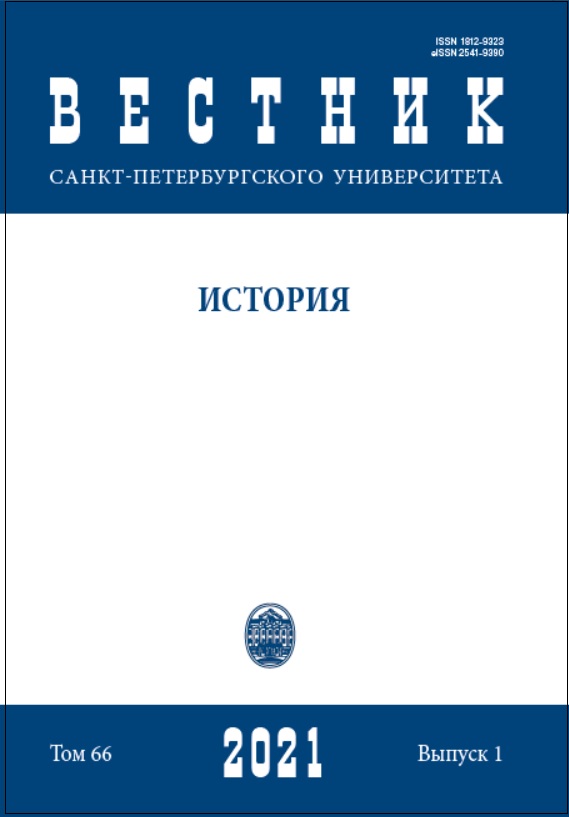To the history of Commission for the eradication of abuses in the Taurida province
DOI:
https://doi.org/10.21638/spbu02.2021.103Abstract
This article examines work of The Commission for the eradication of abuses in the Taurida Governorate, which existed in 1816–1819. The sources used for this study include documents from the Russian State Historical Archive and State Archive of the Republic of Crimea. Central authority established this organization to verify the work of the local administration and illegal acquisition of land by officials. Members of ruling circle believed that regulation of land relations and bringing order to the bureaucracy work was one of the most important things on the way to incorporation Crimea into Russian Empire space. That is why the first land commission in Crimea was created at the end of XVIII century. Massive abuse of Russian civil servants was widespread phenomenon after French invasion in Russia in 1812. Nevertheless, in Crimea the situation was extremely hard. Commission members founded numerous violations of laws. Moreover, local bureaucracy and Taurida civil governor A. M. Borozdin were under investigation. In this situation in most cases suffered Crimean Tatar population, which influenced into their loyalty to Russian administration. Permanent military conflicts with Ottoman Empire and the lack of resources for the development of frontier areas forced high official to seek compromise solutions. The local bureaucracy was not interested in investigating the abuses and sabotaged the work of the Commission. Moreover, majority of Commission members was involved in trial. This factor led to the creation in 1819 a new Committee under the Ministry of internal Affairs.
Keywords:
Taurida Governorate, Crimea, Novorossya, land conflicts, officials, corruption
Downloads
References
Downloads
Published
How to Cite
Issue
Section
License
Articles of "Vestnik of Saint Petersburg University. History" are open access distributed under the terms of the License Agreement with Saint Petersburg State University, which permits to the authors unrestricted distribution and self-archiving free of charge.





